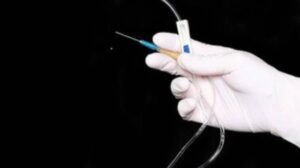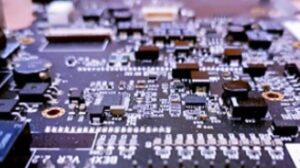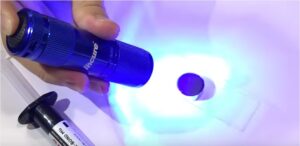Understanding Medical Epoxy
Medical epoxy is a specialized adhesive designed for use in the healthcare and medical device industry. Unlike standard epoxies, medical epoxies undergo rigorous testing and certification to ensure they meet strict biocompatibility standards. This means they are safe for use in contact with human tissue and bodily fluids.
Key Characteristics of Medical Epoxy
- Biocompatibility: Medical epoxies must not cause adverse reactions when in contact with the human body. They undergo extensive testing to ensure they are non-toxic, non-irritating, and hypoallergenic.
- Sterilizability: These epoxies can withstand sterilization processes, such as autoclaving, ethylene oxide, or gamma radiation, without compromising their properties.
- Chemical Resistance: They often exhibit resistance to various chemicals, including bodily fluids, cleaning agents, and disinfectants.
- Mechanical Strength: Medical epoxies must possess excellent bonding strength, durability, and resistance to stress and fatigue.
- Optical Clarity: In some cases, medical epoxies require optical clarity for applications like medical devices with optical components.
Applications of Medical Epoxy
Medical epoxies find applications in a wide range of medical devices and equipment, including:
- Implants: Cardiac, orthopedic, dental, and neurological implants
- Diagnostic Instruments: Catheters, endoscopes, probes
- Surgical Tools: Dental instruments, surgical equipment
- Drug Delivery Systems: Patches, implants
- Medical Electronics: Pacemakers, defibrillators, hearing aids
Choosing the Right Medical Epoxy
Selecting the appropriate medical epoxy depends on several factors:
- Biocompatibility requirements: Ensure the epoxy meets specific biocompatibility standards.
- Mechanical properties: Consider the necessary strength, flexibility, or other mechanical properties.
- Sterilization method: Choose an epoxy compatible with the sterilization process used.
- Chemical resistance: Select an epoxy that can withstand the chemicals it will encounter.
- Application method: Consider the desired curing method (e.g., heat, UV) and viscosity for easy application.
Conclusion
Medical epoxy is a critical component in the healthcare industry, providing essential bonding and sealing solutions for a wide range of medical devices. Its unique properties and strict regulatory requirements make it a specialized material requiring careful selection and use.




